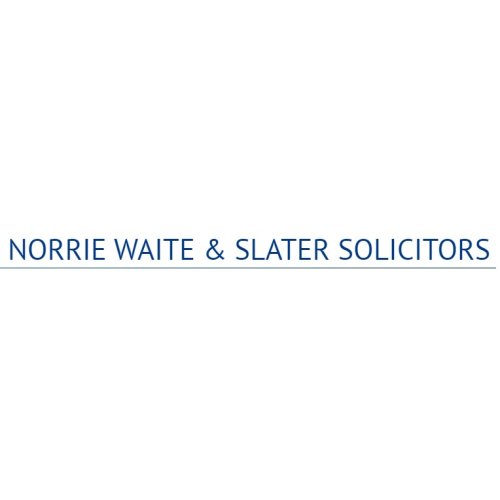Best ADR Mediation & Arbitration Lawyers in Rotherham
Share your needs with us, get contacted by law firms.
Free. Takes 2 min.
List of the best lawyers in Rotherham, United Kingdom
About ADR Mediation & Arbitration Law in Rotherham, United Kingdom
ADR, or Alternative Dispute Resolution, is an umbrella term for methods to resolve disputes out of court, including Mediation and Arbitration. In Rotherham, United Kingdom, these techniques are widely recognized and encouraged as they promote the resolution of legal disagreements without ensuing a full-fledged court battle. They're highly confidential, flexible, and more cooperative than traditional court outcomes. A mediator or arbitrator can be a legal professional, a trained specialist, or, in some cases, an individual mutually chosen by the disputing parties.
Why You May Need a Lawyer
An experienced lawyer in ADR can help you with negotiation strategies, clarify your legal rights, ensure your compliance with all procedural obligations, and ensure that mediations or arbitrations are conducted fairly and legally. They can provide guidance and represent your interests throughout the process. You may need a lawyer if you are involved in a business dispute, property disputes, employment disputes, or family-related issues including divorce and child custody.
Local Laws Overview
ADR Mediation & Arbitration in Rotherham, UK, is governed by the Arbitration Act of 1996 for arbitration cases, and the Civil Procedure Rules for most mediations. The process may be voluntary or court-ordered, and it is usually confidential. However, in certain instances, particularly in family law cases, mediators may have a requirement to report specific information to courts or authorities. All parties should understand their rights and obligations thoroughly before entering into ADR.
Frequently Asked Questions
What's the difference between mediation and arbitration?
Mediation essentially involves a neutral third party who assists the disputing parties in reaching a mutually satisfactory solution. In contrast, an arbitrator, also a third party, takes a more judicial role, hearing evidence from both sides and making a decision that can be legally binding.
Is ADR legally binding?
It depends on the nature of the procedure. In mediation, the outcome can be binding if the resulting agreement is formalised into a legal contract. Meanwhile, in arbitration, the arbitrator's decision can be legally binding and enforceable in the court.
Can I have a lawyer present in ADR proceedings?
Yes. You are entitled to legal representation during ADR proceedings, and it is usually beneficial to have one to ensure your rights and interests are protected.
How long does an ADR process usually take?
The length of ADR varies depending on the complexity of the case at hand. It can range from a few weeks to several months or more.
Is ADR confidential?
Yes, typically. Confidentiality is one of the primary advantages of ADR, although there may be some exceptions, particularly in family law cases.
Additional Resources
For more specific advice or details related to ADR Mediation & Arbitration, consider contacting local law firms, the Rotherham city council, or local ADR groups and organizations. Check also for free legal advice services offered by various charitable organizations and law centres within the community.
Next Steps
If you require legal assistance in ADR Mediation & Arbitration, it is advisable to consult with a lawyer that specialises in this field. Gathering all related documents, information, and any evidence associated with the dispute will also aid in expediting the process. Consider taking notes regarding the conflict to provide your representative with a clear understanding of the situation.
Lawzana helps you find the best lawyers and law firms in Rotherham through a curated and pre-screened list of qualified legal professionals. Our platform offers rankings and detailed profiles of attorneys and law firms, allowing you to compare based on practice areas, including ADR Mediation & Arbitration , experience, and client feedback.
Each profile includes a description of the firm's areas of practice, client reviews, team members and partners, year of establishment, spoken languages, office locations, contact information, social media presence, and any published articles or resources. Most firms on our platform speak English and are experienced in both local and international legal matters.
Get a quote from top-rated law firms in Rotherham, United Kingdom — quickly, securely, and without unnecessary hassle.
Disclaimer:
The information provided on this page is for general informational purposes only and does not constitute legal advice. While we strive to ensure the accuracy and relevance of the content, legal information may change over time, and interpretations of the law can vary. You should always consult with a qualified legal professional for advice specific to your situation.
We disclaim all liability for actions taken or not taken based on the content of this page. If you believe any information is incorrect or outdated, please contact us, and we will review and update it where appropriate.









